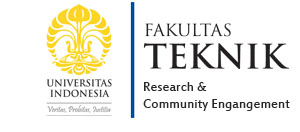| Authors | Agus Pamitran, Nandy Putra, Hendri D.S. Budiono |
|---|---|
| Publication Name | International Journal of Technology |
| Abstract | Increasingly limited sources of fossil energy Absorption cooling systems for buildings with The pyrolysis process is another example of an |
| Publisher | International Journal of Technology |
| ISSN | 2086-9614 |
| Page | 185-188 |
| Volume | 2 |
| Impact Factor (JCR) | 0.085 |
| SJR | 0.139 |
| Ranking Quartile | Q4 |
| Website | http://www.ijtech.eng.ui.ac.id/index.php/journal/article/view/3098 |
Thermofluids on renewable energy, refrigeration and air conditioning, and flame and combustion
LATEST POST
9 Peneliti FTUI Sukses Memperoleh Hibah RIIM-BRIN 2025 pada Kompetisi Eksternal Batch Ketiga
FT UI Bantu Pulihkan Aceh Tengah, Padukan Misi Kemanusiaan dengan Mitigasi Berbasis Teknologi
CALL FOR PROPOSAL: Penerimaan Hibah Seed Funding Publikasi FTUI 2025
CALL FOR PROPOSAL: Penerimaan Hibah Osaka Gas Tahun 2025
6 Dosen Fakultas Teknik Universitas Indonesia Catatkan 8 Paten
POPULAR NEWS
LATEST VIDEOS
LOGIN






